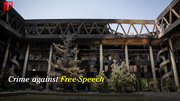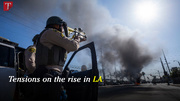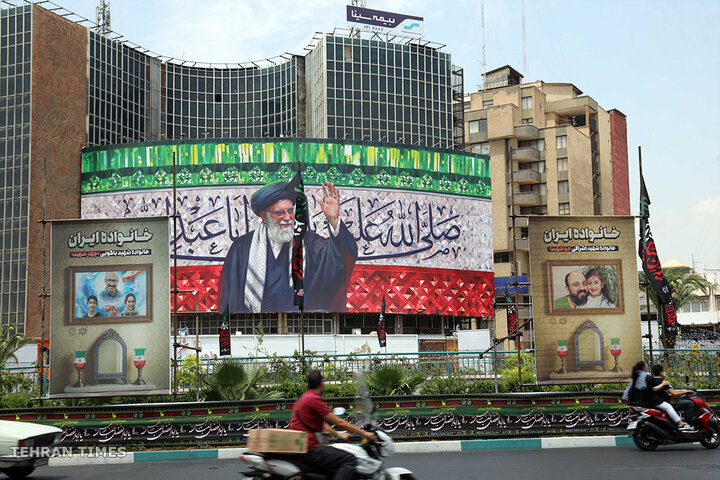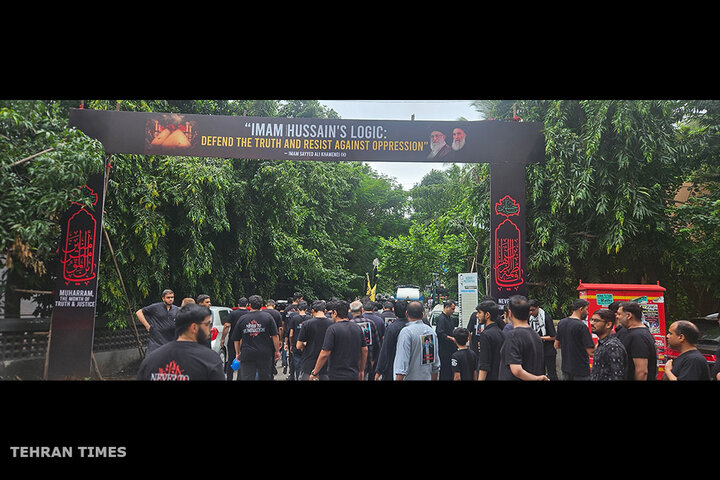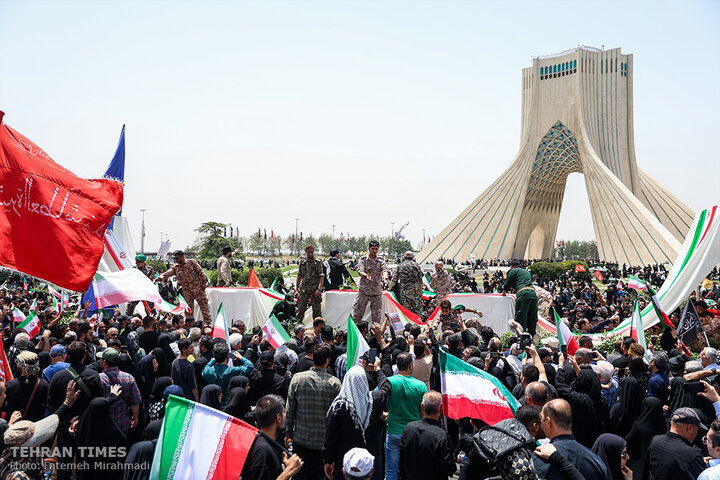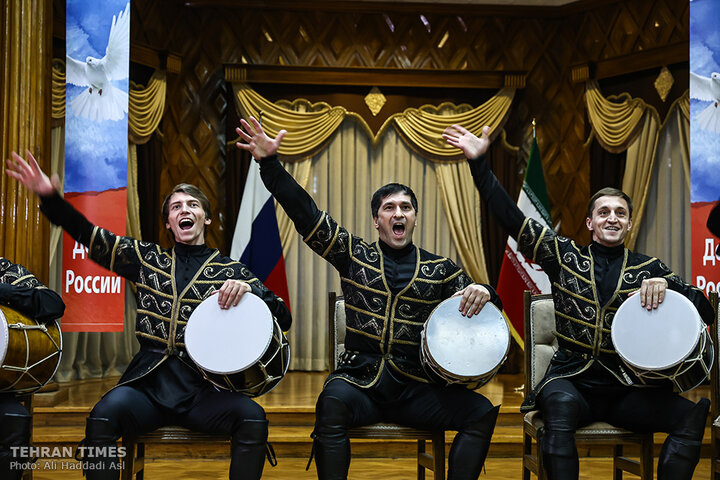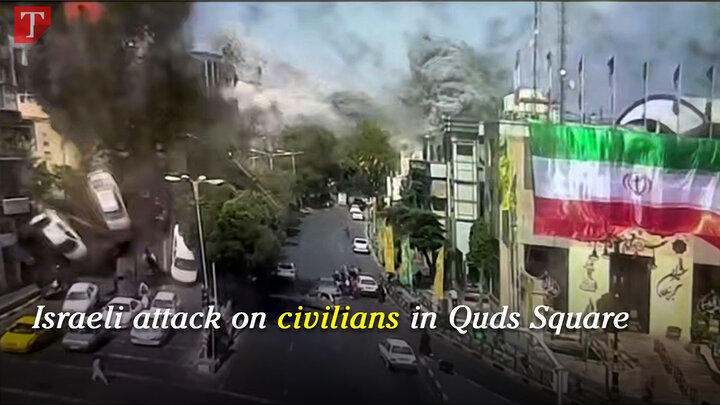-
 2025-07-15 21:47
2025-07-15 21:47
SCO: The recognized voice of the Global South against aggression
Araghchi hails SCO's condemnation of US-Israeli aggression against Iran during visit to China
TEHRAN – Iran’s Foreign Minister Abbas Araghchi has underscored the importance of the Shanghai Cooperation Organization (SCO) as a vital regional body and expressed gratitude for its support of Iran in the wake of Israeli aggression.
-
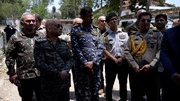
Foreign military attachés visit Evin Prison following Israeli strike
TEHRAN — A delegation of military attachés from 20 foreign embassies stationed in Tehran visited Evin Prison on Tuesday, touring the sections recently damaged during an Israeli missile attack.
-
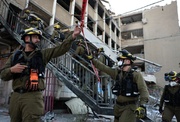
Iran-Israel war: A clash of missiles, narratives, and digital battlegrounds
TEHRAN – The recent 12-day war between Iran and Israel wasn’t just another flare-up in the volatile West Asia region—it was a seismic shift. While the exchange of missiles and drones lasted less than two weeks, the war exposed deeper truths about power, deterrence, and the new era of hybrid warfare where social media narratives could be as critical as military strikes.
-
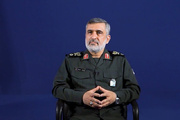
Interview with Martyr Hajizadeh reveals Leader’s instrumental role in missile program
TEHRAN – Experts and analysts believe that Iran’s missile program was what saved the country from the devastating fate the U.S. and Israel had devised for it in the lead-up to the war that began on June 13.
-
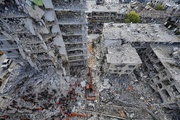
By Batool Subeiti
The Israeli occupation entity’s end is on horizon
LONDON - If the Israeli war on Iran had continued for just two more weeks, it would have been possible that all the occupation entity’s air defense systems would have been depleted as around 30 missiles would have fallen daily on the entity in specific locations, with massive destructive power.
-
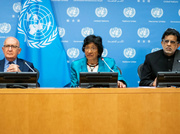
By Sahar Dadjoo
Sanctions, delegitimization, and resignations: The end of UN oversight in occupied Palestine
TEHRAN- The recent resignation of all members of the United Nations Commission of Inquiry on the Occupied Palestinian Territory epitomizes the fraught intersection of human rights accountability, geopolitical confrontation, and organizational challenges within the UN system.
Politics
-
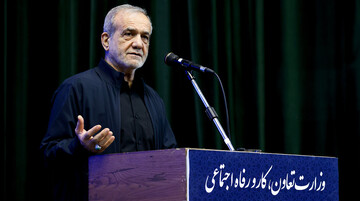
‘Everyone rose up’: Pezeshkian praises national unity forged against Israel
TEHRAN – President Masoud Pezeshkian has praised the unprecedented unity displayed by Iranians following the recent 12-day war initiated by Israel. Speaking at a ceremony held at Iran's Ministry of Cooperative, Labor and Social Welfare, on Tuesday, Pezeshkian emphasized that the aggression had fostered a powerful sense of national solidarity, even among those who had previously felt alienated from the government.
-
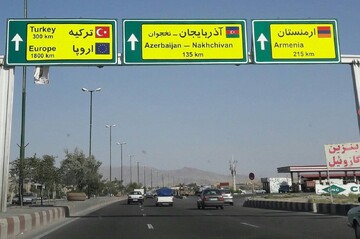
US is now taking charge of the infamous Zangezur project
TEHRAN – U.S. Ambassador to Turkey Tom Barrack announced on Friday that the United States has suggested to take control of a proposed corridor that would connect mainland Azerbaijan to Nakhchivan by encroaching on Armenia’s territory, disrupting the country’s historical borders with Iran, and denying Yerevan’s oversee of the route.
-
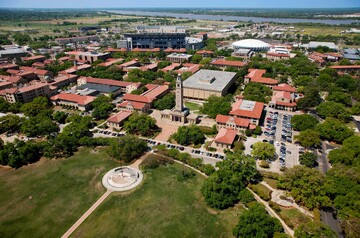
US court rebuffs Trump: Iranian scholar released from ICE detention
TEHRAN – A Louisiana magistrate judge ordered the immediate release of Iranian mechanical engineering doctoral candidate Pouria Pourhossein-Hendabad on Monday, barring U.S. authorities from deporting him after his arrest during the Israeli regime’s U.S.-backed war on Iran.
Sports
-

Iran basketball team to hold camp in Beirut
TEHRAN – Iran’s men's basketball team departed from Tehran on Tuesday to hold a training camp in Beirut, Lebanon.
-

Iran beat Mongolia in FIBA Women’s Asia Cup 2025 Division B
TEHRAN – Iran’s women’s basketball team defeated Mongolia 89-55 in the FIBA Women’s Asia Cup 2025 Division B on Tuesday.
-

Crucial VNL Week ahead for Iran
TEHRAN - The Iran men’s national volleyball team are currently training intensively in Gdansk, Poland, preparing for the highly competitive third week of the 2025 Volleyball Nations League (VNL), which kicks off on Wednesday.
Culture
-
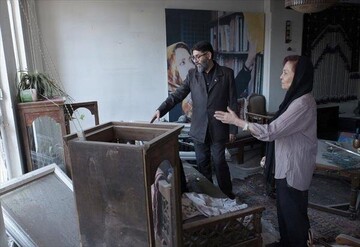
Iran leads restoration efforts to support artists, cultural institutions after Israeli attacks
TEHRAN – Following the 12-day Israeli aggression on Iranian soil, the country is actively engaging in recovery and rebuilding efforts. Beyond the tragic loss of lives and injuries sustained by civilians, the attacks have inflicted damage on urban infrastructure and, notably, on the cultural and artistic communities.
-

Afghan author’s new novel celebrates Iran-Afghanistan cultural, spiritual ties
TEHRAN – The novel "Qezel-Ahou" by Afghan writer Omolbanin Maher, a compelling narrative exploring the profound relationship between Iran and Afghanistan, has recently been published by Soore Mehr Publication in Tehran.
-

Ashura opera puppet show returns to stage to commemorate Muharram
TEHRAN – Iranian director Behruz Gharibpour is restaging the Ashura opera puppet show with his Aran Theater Troupe at Tehran’s Ferdowsi Hall to mark the month of Muharram.
Economy
-
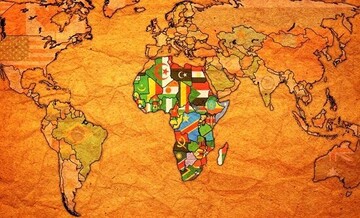
Exports to Africa jump 85% in spring, trade surplus more than doubles
TEHRAN – Iran’s exports to African countries rose 85 percent in the first quarter of the current Iranian year (March 21- June 21) compared to the same period last year, while its trade surplus with the continent surged by 113 percent, a senior official at Iran’s Trade Promotion Organization (TPO) said on Tuesday.
-
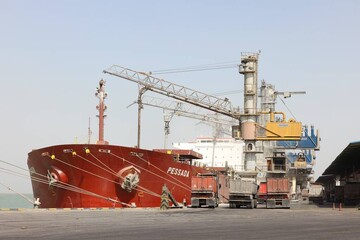
Iran’s ports handle 53m tons of cargo in Q1
TEHRAN-Iran’s ports handled a total of 53 million tons of cargo during the first quarter of the current Iranian calendar year (March 21-June 21), according to a report published by the country’s Ports and Maritime Organization (PMO).
-
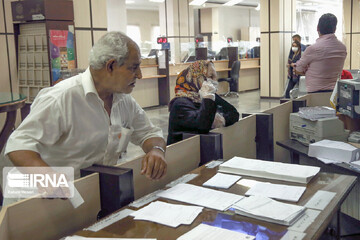
Bank lending rises 43% in Q1, households receive quarter of total loans
TEHRAN – Iran’s banking system issued 1.776 quadrillion rials (about $35.5 billion) in loans during the first quarter of the current Iranian year (March 21 – June 21), marking a 42.8 percent increase compared to the same period last year, according to data released by the Central Bank of Iran (CBI) on Tuesday.
Society
-

Iranian youths to attend 8 intl. Olympiads in summer
TEHRAN – Iranian students are planning to participate in eight international Olympiads this summer.
-

Iraq seeks to foster ties with Islamic Azad University in emerging technologies
TEHRAN – Iraq is interested in expanding its collaborations with the Islamic Azad University in fields such as artificial intelligence (AI), quantum science, and life sciences, IRNA quoted Yasser Abdul Zahra Al-Hajjaj, Cultural Attaché of Iraq in Tehran, as saying.
-
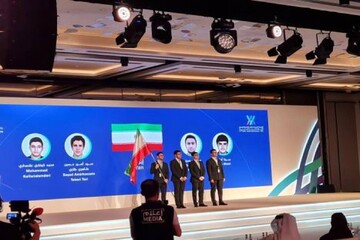
Iran grabs silver medals at IChO 2025
TEHRAN – Iranian students won four silver medals at the 57th International Chemistry Olympiad (IChO) held from July 5 to 14 in Dubai, the United Arab Emirates.
Tourism
-
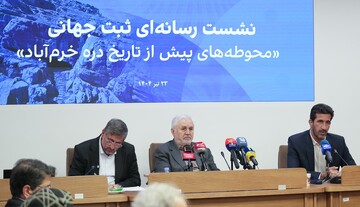
Iran’s recent UNESCO label was a combined effort of archaeology and cultural diplomacy
TEHRAN – Iran’s latest addition to the UNESCO World Heritage list highlights a successful blend of archaeology and cultural diplomacy, which helps promote the nation’s rich historical and cultural legacy, officials said on Monday.
-
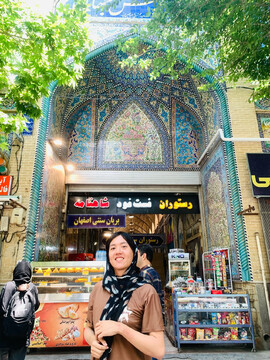
‘I will never regret coming’: solo female traveler reflects amid Israel’s strikes on Iran
TEHRAN - When 24-year-old Taiwanese traveler Ariel Kang Chengxuan went to bed on June 12 in Isfahan, Iran, she had no idea she was about to wake up in the midst of all-out war.
-

University of Michigan professor congratulates Iran on UNESCO designation of Paleolithic caves
TEHRAN - Professor John D. Speth, a distinguished anthropologist and emeritus faculty member at the University of Michigan, has warmly congratulated the recent inscription of the Paleolithic caves of Iran’s Khorramabad Valley on the UNESCO World Heritage List.
International
-

The Israeli occupation entity’s end is on horizon
LONDON - If the Israeli war on Iran had continued for just two more weeks, it would have been possible that all the occupation entity’s air defense systems would have been depleted as around 30 missiles would have fallen daily on the entity in specific locations, with massive destructive power.
-

Sanctions, delegitimization, and resignations: The end of UN oversight in occupied Palestine
TEHRAN- The recent resignation of all members of the United Nations Commission of Inquiry on the Occupied Palestinian Territory epitomizes the fraught intersection of human rights accountability, geopolitical confrontation, and organizational challenges within the UN system.
-
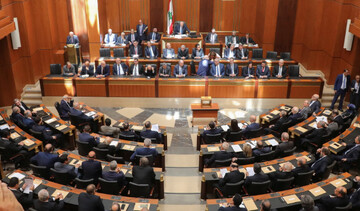
Lebanese lawmakers question the cabinet over its policies
BEIRUT — The Lebanese Parliament held a session on Tuesday to ask questions to the government of Prime Minister Nawaf Salam about the ongoing Israeli attacks on Lebanon, the reconstruction of residential complexes, and the American threat to Lebanon’s sovereignty.
Most Viewed
-
Bibi hangs onto ‘daddy’ over missile nightmare
-
Will European TNT demolish NPT?
-
Merz’s Iran remarks reminiscent of Nazi mentality
-
Dramatic US threat to Lebanon: Surrender by force or else!
-
Inside Israel’s botched attack on Iran's Supreme National Security Council
-
28 ambassadors to Iran tour attacked IRIB complex
-
Suicides among Israeli soldiers expose systemic breakdown
-
'A smear campaign': Moscow says it has not urged Iran to abandon uranium enrichment
-
Iran, Iraq, Pakistan unite for Arbaeen amid regional solidarity against Israeli aggression
-
Condolences on humanity's return to a modern dark age
-
Iran an important partner in One Belt, One Road initiative: China Railway general manager
-
Iran, UAE security chiefs stress collective regional approach to Persian Gulf stability
-
European snapback bid would be ‘utter audacity,’ senior Iranian diplomat warns
-
Top economic council approves incentives for renewable energy expansion
-
Tehran stands by Leader’s fatwa banning nuclear weapons: Parliament
